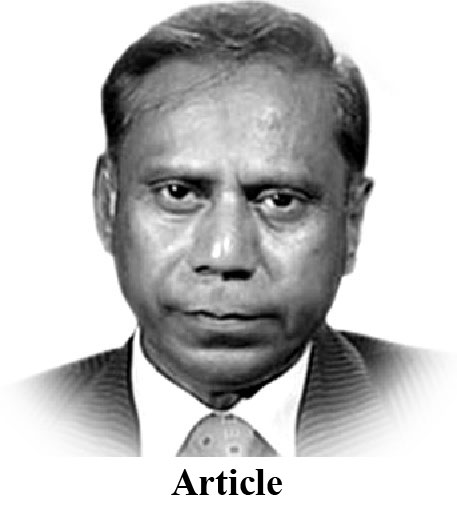Sultan M Hali
WILLIAM Shakespeare, in his epic play “Julius Caesar” has a soothsayer declaim “Beware the ides of March” warning Caesar to take heed that his life is in danger. The Ides of March is a day on the Roman calendar that corresponds to 15 March, marked by several religious observances. For Pakistan, the month of December has somehow become synonymous with tragedies. On 5 December 1969, Mujib made a declaration at a public meeting held to observe the death anniversary of Suhrawardy that henceforth East Pakistan would be called “Bangladesh”. That was the beginning of the end, since West Pakistani authorities failed to take heed of the writing on the wall.
On 16 December 1971, Pakistan’s eastern wing was severed and became Bangladesh. India’s machinations in exploiting the sensitivities of the Bengalis of erstwhile East Pakistan and the callousness of the West Pakistani politicians whose myopic vision contributed to the debacle are still fresh in mind to be repeated here in detail. The date of 16 December 1971 is perhaps the bleakest in Pakistan’s history, and images of Lieutenant General Amir Abdullah Khan Niazi signing the Instrument of Surrender in the presence of Indian Army’s GOC-in-C Eastern Command still haunt the mind when rekindled by Indian media triumphantly displaying them on the anniversary of the event each year. Indian Prime Minister Indira Gandhi had jubilantly proclaimed: “Today we have sunk Jinnah’s Two-Nation Theory in the Bay of Bengal.” On 6 December 1992, a frenzied mob of Hindu Kar Sevaks (activists) demolished the historic 16th-century Babri Mosque in the city of Ayodhya, in Uttar Pradesh. In Hindu mythology, the city of Ayodhya is supposedly the birthplace of their god Rama. In the 16th Century a Mughal General, Mir Baqi, had built a mosque, known as the Babri Masjid, at a site claimed by some Hindus to be Ram Janmabhoomi, the birthplace of Rama. Ironically, two Hindu researchers Krishna Jha & Dhirendra K. Jha in their 2012 exposé “Ayodhya: The Dark Night” based on intrepid research and first-hand interviews of eye witnesses, reveal that after the assassination of Mahatma Gandhi in 1948, on 22 December 1949, an idol of Ram was planted in the Babri Masjid. A little-known sadhu, Abhiram Das, and his followers surreptitiously entered the Babri Masjid and planted an idol of Rama inside it to establish their false claim.
On 13 December 2001, five terrorists infiltrated the Parliament House in New Delhi in a car with fake labels. All five assailants were killed before they could enter the Parliament building, while nine others lost their lives and at least 22 were injured. At the drop of a hat, India blamed Pakistan for sponsoring the assault branding it a terrorist attack, using it as a plea for positioning Indian armed forces on the Pakistani borders in a hostile posture. Failing to subdue Pakistan, Delhi Police officials arrested Afzal Guru within 24 hours of the attack on Parliament, claiming that he was the mastermind of the assault. An Arabic Professor at New Delhi, SAR Gilani, Afzal’s cousin Shaukat and his wife Afshan were also detained. The quartet was tried in a fast track court and despite flimsy proof, the verdict declared them guilty. The two most incriminating pieces of evidence against Guru were a cellular phone and a laptop confiscated at the time of arrest. It only contained the fake Home Ministry passes and the bogus identity cards depicting that the ‘terrorists’ used to access parliament — and a Zee TV video clip of Parliament House. Strangely, according to the police, Guru had deleted all the information except the most incriminating bits. The police witness said he sold the crucial SIM card that connected all the accused in the case to one another and Guru on 4 December 2001. But the prosecution’s own call records showed the SIM was operational from 6 November 2001. It was indeed a travesty of justice.
16 December 2014 is yet again a sad day in the brief history of Pakistan. On this dark morning, six terrorists affiliated with the Tehreek-e-Taliban Pakistan (TTP) penetrated the Army Public School (APS) Peshawar and in the carnage that followed, 141 persons were brutally slaughtered including 132 innocent children. The gruesome act was perhaps in retaliation against the military operation Zarb-e-Azb to decimate TTP terror mongers entrenched in the treacherous terrain of North Waziristan. The APS attack is considered Pakistan’s 9/11 as it rallied the people, the government and the armed forces on one page to combat the scourge of terrorism whole heartedly. Prior to the APS attack, many politicians and some analysts were questioning Pakistan’s participation in the war on terror and considered it an alien phenomenon, from which Pakistan should distance itself.
The APS bloodbath transformed the nation into one solid edifice, determined to eradicate terrorism from Pakistan. The National Action Plan (NAP) to stamp out terrorism promulgated in January 2015 envisaged foreign and domestic policy initiatives aimed to crack down on and eventually eliminate proscribed organizations across the country. The plan comprised actions ranging from lifting the moratorium on capital punishment, the establishment of military courts, and cracking down on the financiers, facilitators and abettors of terrorism, sectarian and ethnic strife. December 2019 has come and gone with blood and gore spattered at various locales while an ailing former President Musharraf has been awarded the death sentence with the ruling that if he dies before the sentence is carried out, his body should be dragged to the D-Chowk and hung for three days. Beware the Ides of December.
—The writer is retired PAF Group Captain and a TV talk show host.










